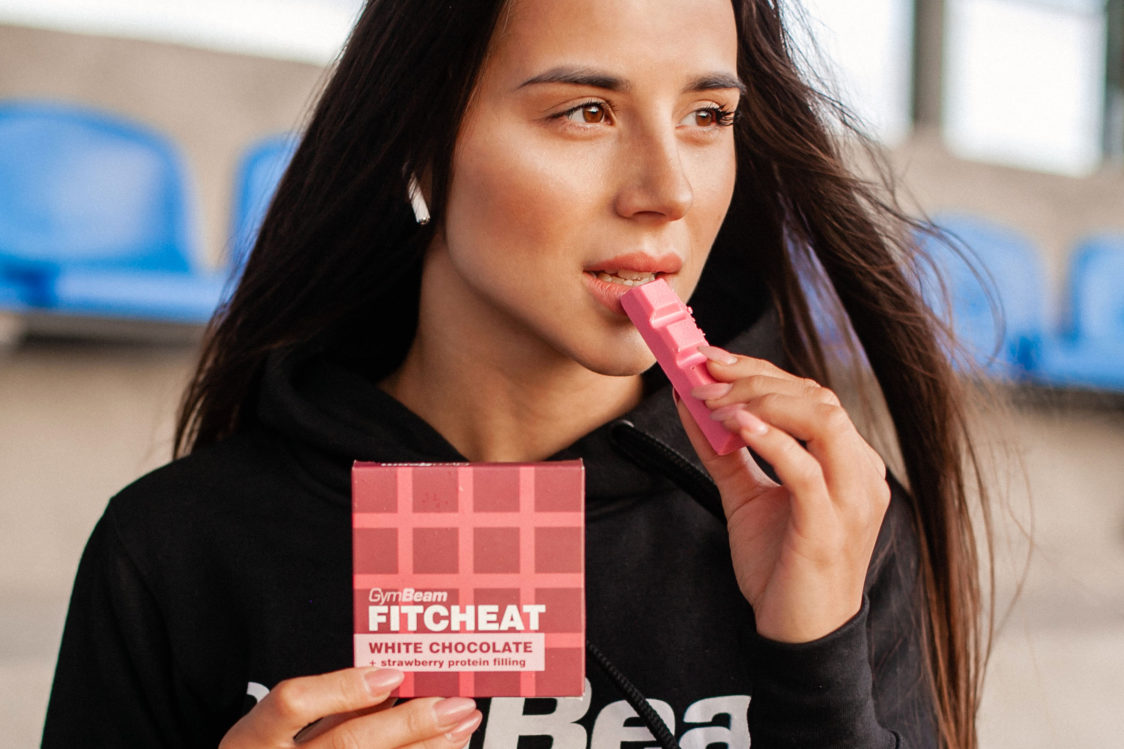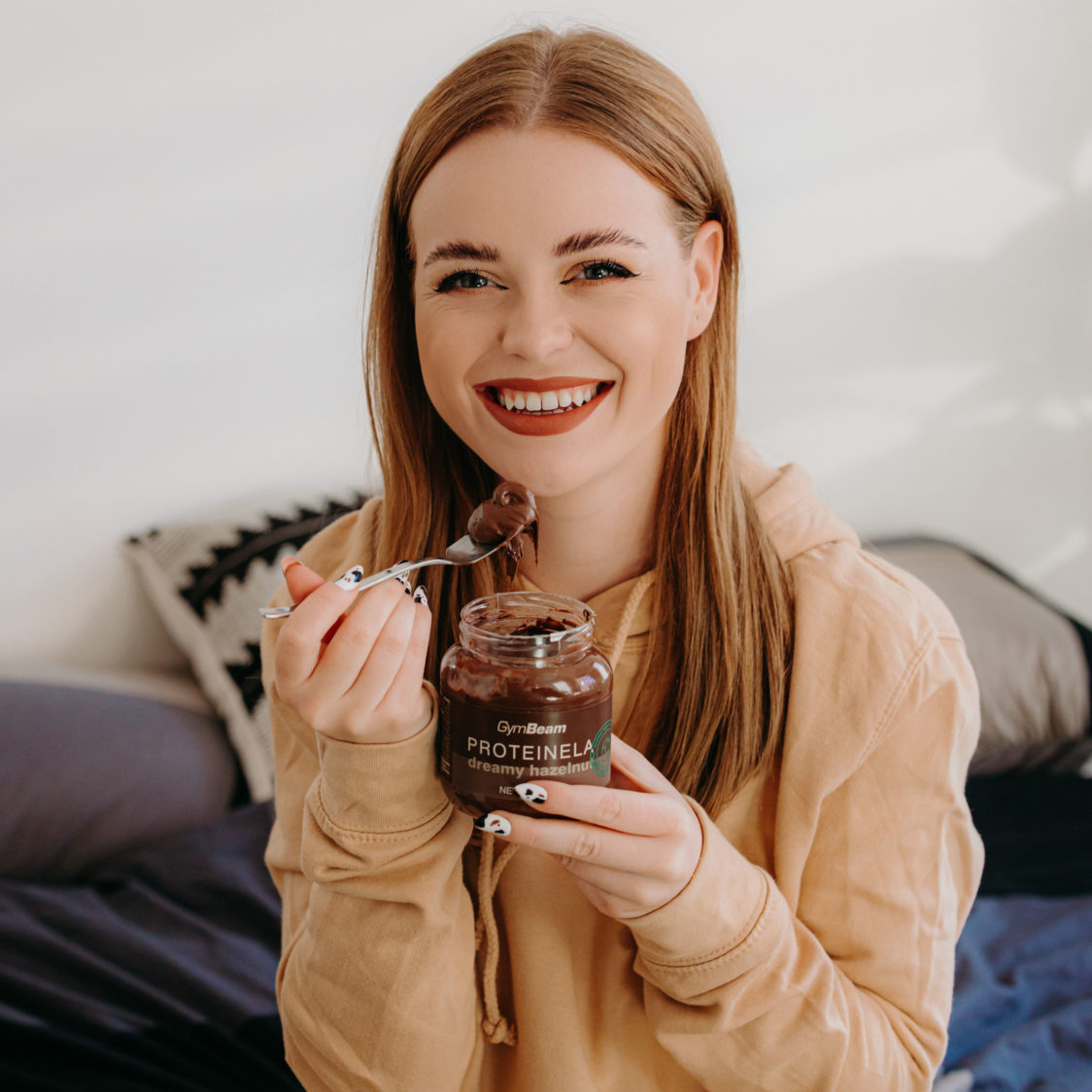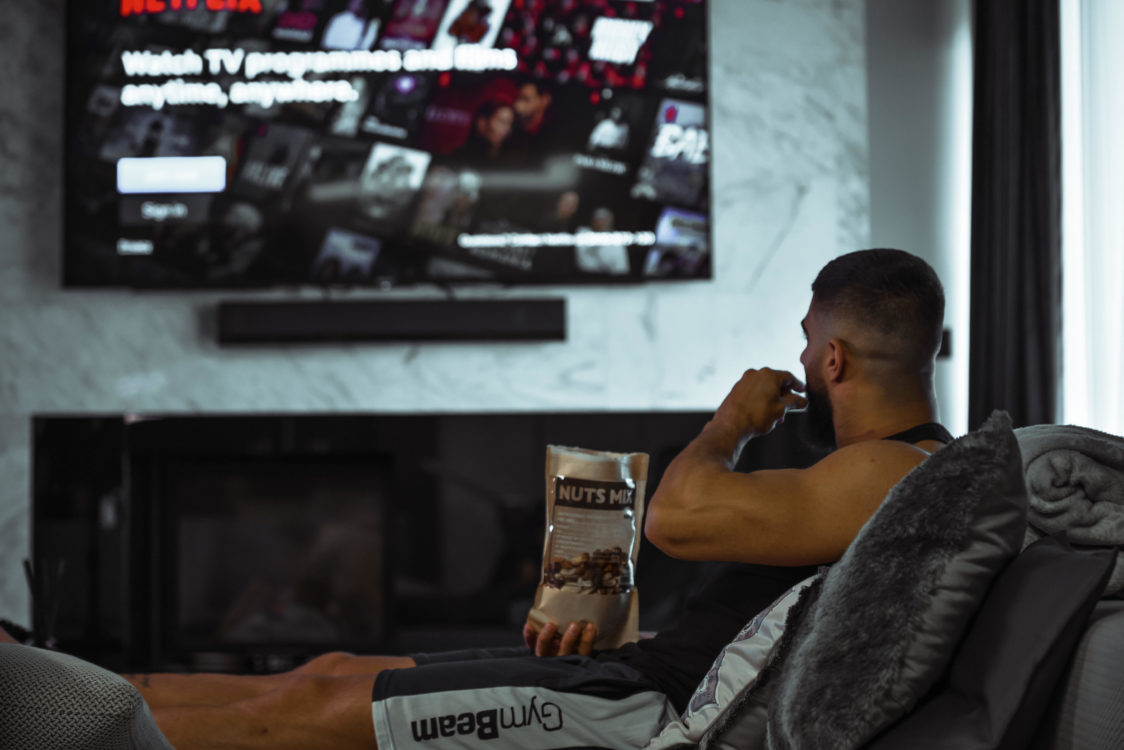Table of Contents
“I eat almost nothing and I still can’t lose weight,” is one of the things that nutritionists hear from their clients suspiciously frequently during consultations. However, after a careful analysis of the eating plan, there is usually a shocking revelation and an eye-opener about the way sneaky calories find their way to you.
You may have realized that too often during the day, you go to the kitchen and look for something tasty. Or you somehow get a blackout, and when you wake up, you are holding an empty wrapper from hidden chocolate that you saved for the bad times, and you think to yourself – what has just happened? What about watching some popular detective story in the evening, during which the blood freezes in your veins and chips or popcorn disappear from the bowl at the speed of light? Picking at food, thoughtless snacking, and tasting food while cooking lead to an increase in calorie intake, which can be reflected in weight gain or frustration from not being able to lose weight.
You make an average of 200 food-related decisions each day.
Some people think about food all the time while others only when they are hungry, crave something, or when they smell fresh bread from the bakery. On average, according to scientists, each of us makes more than 200 decisions about food every day. And what is the most interesting thing about it? That we are aware only of a fraction of them and the rest takes place somehow in the autopilot mode and due to our previous life habits. This can result in thoughtless eating and snacking with a greater likelihood of overeating and gaining weight. [1]
We all have our own eating habits. And to be frank, we all love eating, also because it can stimulate the reward system in our brain, which manifests satisfaction by releasing dopamine neurotransmitters, and that is why we feel good and satisfied. This is why indulging in an occasional dessert, a piece of chocolate with your coffee, or a bowl of nuts in front of the TV quickly becomes a regular thing in our daily lives, and we do not even realize it. If you are interested in why you do not see the results despite your hard work, read our article You Aren’t Seeing Results from Diet and Hard Work at the Gym? We Will Tell You How to Succeed!

How Can Snacking Practically Hinder Weight Loss?
To illustrate how munching can prevent weight loss, let’s have a look at an imaginary couple, Anne and George. Anne and George have been living together for some time and now, due to the current situation, they are both in the home office. Because they have more time, they decided to use it to improve their lifestyle and get rid of a few pounds of fat. In order to control their energy intake, they use the power of food prep. They set a daily calorie deficit of 500 kcal to lose weight.
And how do they manage to lose weight? See for yourself in the following story.
What will Anne and George actually eat in a day and what should they eat in order to lose weight?
Anne and George watched Money Heist last night, from which they could not leave and went to bed late, they both get up before 9am. At half-past nine, they start their working day at the home office, and they have to have something to eat because, without breakfast, they can not reliably concentrate on work.
Breakfast:
For breakfast, they both have porridge almost every day, which they also have incorporated into their weight loss diet. Once in the kitchen, Anne turned on the kettle to heat the water for their morning coffee. While mixing the porridge in a pot, she had one piece of the chocolate that was meant for their breakfast, saying that it was just one piece of quality chocolate. Meanwhile, George came to the kitchen and started making coffee. Anne likes drinking cappuccino, so he made it with whole milk, and George made one Americano for himself, also with whole milk and maple syrup. However, they both planned to add semi-skimmed milk. As a last step in preparing breakfast, Anne added a really generous teaspoon of peanut butter to both portions.
Extra calories:
- Anne: a piece of 70% dark chocolate (108 kcal), the difference between semi-skimmed and whole milk per 100 ml (20 kcal), and 20 g of extra peanut butter (120 kcal) = 248 kcal
- George: the difference between whole and semi-skimmed milk per 100 ml (20 kcal), 20 ml of maple syrup (52 kcal), and 20 g of peanut butter (extra 120 kcal) = 192 kcal
After breakfast, they both get to work, but after about two hours, they both meet again in the kitchen to make some tea. They both crave something, and they have a snack that is scheduled in an hour. George opens the fridge and there is a bowl of guacamole which he eats with a piece of wholemeal bread, and Anne could not resist the last cookie in the pantry.
Extra calories:
- Anne: 20g biscuit (97 kcal) = 97 kcal
- George: 30 g of wholemeal bread (75 kcal) and 50 g of guacamole (65 kcal) = 140 kcal
Snack and Lunch:
They both eat their snack and during lunch, they agree on when they go running in nature according to their weight loss plan and to clear their minds of work duties. George has 150 grams of Pad Thai with chicken and adds about 50 ml of Sweet Chilli Sauce to his lunch, thinking that he will run more to burn it off. Anne is happy with everything as it is.
Extra calories:
- Anne: 0 kcal
- George: 50 ml of Sweet Chilli Sauce (80 kcal) and 150 g Pad Thai with chicken (200 kcal) = 280 kcal
Afternoon coffee:
Anne and George are used to having one more cup of coffee about an hour after lunch because they feel that they can work and concentrate a lot better. This time, Anne makes coffee and chooses the right semi-skimmed milk for the cappuccino and Americano. Anne loves to drink coffee with something sweet, so she opens the pantry, finds Flapjack, and decides to cut it in half because she is aware of its energy value.
Extra calories:
- Anne: 20g Flapjack (93 kcal) = 93 kcal
- George: 0 kcal
Afternoon snack and afternoon run:
Since they are both aware they ate a little more than they should have, they decide to run 20 minutes longer than they had previously planned, and they would eat only one portion of a snack.
Extra calories burned:
- Anne: 200 kcal
- George: 240 kcal
Dinner and snacking in front of the TV:
Since Anne and George think that they burned a large number of calories while running, as a reward, Anne will have 6 oz of her favourite wine for dinner, and George will have one beer. And since it is evening and Money Heist is a really exciting series, there is nothing left, but to watch one more episode. Anne prepares a smaller bowl of nuts because they are healthy, and vegetable chips because they are better than potato chips. While watching the series, George craves something else and snacks on peanuts covered in paprika. Meanwhile, Anne prepares some popcorn because she misses going to the cinema.
Extra calories:
- Anne: 6 oz of wine (125 kcal), 15 cashew nuts (123 kcal), 20 g vegetable chips (100 kcal), 50 g popcorn (170 kcal) = 518 kcal
- George: 0.5 l of 12 ° beer (240 kcal), 20 pieces of cashew nuts (163 kcal), 20 g of vegetable chips (100 kcal), 20 g of peanuts covered in paprika, (105 kcal), 50 g of popcorn (150 kcal) = 758 kcal

Why Anett and George are not losing weight, even though they have their meals prepped?
“Meal Preparation“ is a systematic food preparation, which is a very effective tool for weight loss. It is because it helps manage calorie intake, and any snack or meal with extra calories means slowing down or preventing weight loss. People often think that exercise can burn a large number of calories, and thus get some reward after finishing their workout, which is a mistake. Also, many people usually taste food while cooking, which can result in eating a whole portion.
An example of a model couple, Anne and George, may seem out of this world, but it may not be far from the truth after all. There are still many myths amongst people, that it does not matter how much healthy food we eat, or that vegetable chips are much less caloric compared to potatoes. But these are the myths that belong to the very bottom of nutritional history.
How many calories did Anne and George eat above the plan in total?
Based on the plan, Anne and George had set a caloric deficit of 500 kcal. If we add 20 minutes of running to that, on this model day, Anne got into a deficit of 700 kcal and George into a deficit of 740 kcal.
Anne received 756 kcal and George 1,330 kcal just from snacking. After subtracting the energy output from the run, we get 556 kcal and 1,130 kcal. And since they both had a caloric deficit of 500 kcal set in their meal plan, we still have to deduct these numbers and we get a surplus of 256 kcal for Anne and 630 kcal for George.
| Calorie deficit according to eating plan | -700 kcal | -740 kcal |
| Calorie intake and snacking | +256 kcal | + 630 kcal |
You might be interested in these products:
11 Ways to Reduce Snacking and Unconscious Eating
What exactly is snacking? We can understand it as an unplanned and repeated eating between main meals. If you eat only vegetables and fruits like that, it will not be a problem for you, but I dare say that this is not the case for most of you. Let’s take a look at some simple ways you can fight snacking and eliminate it from your life.
1. Slow down and think about why you want to have “something good”?
Each of us is a magician in his own way. Who has managed to make chips, a full bowl of popcorn, or a bar of chocolate disappear in no time? When you feel like eating everything you can see next time, be smart, take a few breaths, and try to think, why do you crave?
- Are you really hungry or are you just craving something sweet? You will save a lot of calories if you just eat a few berries or other healthy fruit. You can try iced grapes. Just put it in the freezer for a few hours and the sweet snack with the minimum calories is right at your service.
- Are you bored? Especially during a time when we are forced to be at home isolated, you can experience long episodes of boredom. But having food to fight it is just a way to increase body weight. Try to do something you haven’t had time for and have always wanted to learn. How about, for example, to start learning a new foreign language, to play a musical instrument, to use a number of online courses and acquire a skill in computer programs or a field that has always interested you? There are many possibilities. The key is not to give boredom a chance.
- Did someone upset you, something threw you off the track, or you experience chronic stress? Emotional eating is one of the most common strategies for dealing with these factors. Unfortunately, it only works for a short time and you will not find a solution to the painful situation at the bottom of the ice cream jar. You also will not get rid of stress thanks to the chocolate bar and the bottle of wine. The mere fact that you can identify the trigger of the compulsive taste for something good gives you a powerful weapon of self-knowledge. Instead of emotional eating, try to play sports and reduce your mental load in other ways, you can also try one of the forms of meditation or body hardening in cold water.
- Are you always surrounded by food? Certain environment or situations can make you want to eat something, even if you are not hungry. From previous life experiences, you can have food, for example, when travelling by car, train or while you make coffee and sit on the couch. Watch out, be smart and aware every time something like this happens to you. This can help gradually and consciously break this unhealthy habit.
- Are you a woman and do get sugar cravings during period? Due to regular hormonal changes in a woman’s body, you are also haunted by an appetite for sweet and fatty foods. In particular, higher progesterone levels and lower estrogen levels are to blame. [2]
After good oxygenation of the body, you may realize that the compulsive food craving has disappeared. And if you suffer from a loss of motivation to exercise, read our article 5 Tips to Stay Active, Motivated and Never Stop Exercising Even at Home.

2. Always see how much food you have already eaten
According to behavioural scientists, one of the reasons why we are more prone to overeating is a lack of external visual stimuli that reminds us how much food we have already eaten. The researchers tested their hypothesis on 50 students randomly divided into two groups and seated at 21 tables. The researchers observed how many chicken wings the study participants ate while watching sports on television. Consumers could eat as many chicken wings as they wanted. Half of the tables were cleaned, while the other half had bones and leftovers on plates. What did the researchers find out? The group of students who had their leftover food on a plate ate on average 2 chicken wings less compared to the group that did not get visual feedback about the amount of food eaten. [3]
What to do about that? Always keep an eye on how much food you have already eaten. This may include summer barbecues, large celebrations, or family dinners. You do not have to leave the food plates directly in front of you, but try to put them in a visible place where they will not get in the way, so you can remind yourself at any time how much food you have already eaten. This way, you can also stop eating and tasting a bunch of desserts.
3. Always reach for the smaller package
Recently, retail chains have increasingly offered XXL packaging of several products, resulting in more frequent purchases. If you are buying XXL packages of quality ham or yogurt for a large family, then there is nothing wrong with that. But no one needs a huge package of chocolate, candies, chips, or nuts in their cupboard. In most cases, those are snacks that have a large number of calories in a small volume. And how many times have you caught yourself going to the pantry just to take a bite a few times during the day or you ate an XXL pack of chips all alone in front of the TV?
What to do about that? When you buy such foods, always think about whether you need them, and possibly favour little packaging if possible. You will probably eat much less while watching your favourite show on TV.
4. Place excessively tempting foods away from your sight

Usually, when looking for something to eat, you will open your fridge, a pantry, and a kitchen cabinet to find some tasty snack. Foods that are at eye-level are the most visible, and we usually reach for them most often. Or maybe you still have some sweets on the kitchen table that you would have with your coffee? The researchers gave boxes of sweets to 40 secretaries during working hours, with the difference that some boxes were clear, so they could see the candy, and others were not. The secretaries, who had clear boxes of candies within reach, ate about twice as many sweets as those who had solid boxes within reach. [4]
What to do about that? “Out of sight, out of mind.” This is such a piece of simple advice. Rearrange the shelves in the pantry and refrigerator at eye level and place fruits, vegetables, or jams on them. Remove clear containers of sweets from the kitchen and living room, which you either give to someone or hide somewhere in the depths of your pantry. If you do not know how to organize your kitchen properly, read our article 10 tips on how to organize your kitchen for successful weight loss.
5. Don’t buy calorie bombs, or at least don’t buy them in bulk
We usually crave sweet, fatty, and salty foods, which naturally evoke a greater sense of satisfaction. This is also the reason why, naturally, we do not choose vegetables when we crave something. If you know that you can eat a 200-gram package of cookies without blinking an eye, buy the smallest package possible. Ideally, of course, do not buy them at all, but it is necessary to stop eating such snacks gradually.
“If you have a fridge and a pantry full of different foods, the chances are that you will snack on different foods at the same time,“ says nutritionist Keri Gans.
What to do about that? Find your weaknesses and the foods you are addicted to. Do not buy them in bulk just because they are at great price, and buy the smallest package possible. Over time, you should stop buying them.
6. Be aware of calories in food and imagine what you would have to do to burn them
One of the effective tools in the fight against snacking is imagination and knowledge of the energy value of food. Speaking of cookies, an average of 100 grams (5 pieces) contains about 500 kcal, which is about ¼ of the reference value of energy intake of the average adult. This is, for example, the average energy value of a good lunch or dinner. [5]
And what would you have to do to burn 500 kcal in 5 pieces of cookies?
The values below are average and apply to 80 kg men and 65 kg women.
- Running at 8 km/h: 45 minutes for men and 55 minutes for women.
- Walking at 6.5 km/h: 75 minutes for men and 92 minutes for women.
- Cycling at a speed of approximately 20 km/h: 47 minutes for a man and 58 minutes for a woman.
- Gym workout (full body): 57 minutes for men and 71 minutes for women.
What to do about that? Read food labels and avoid calorie bombs. Preferably, know your optimal daily caloric intake and compare what is better. Whether 500 kcal in biscuits that will not satisfy you for too long or a proper lunch, after which you will feel full and it will supply you with all the necessary nutrients. And if you imagine how long you would have to do exercise to burn extra energy from biscuits, you may feel over it. You can calculate your optimal energy intake in our article How to calculate energy and macronutrient intake for weight loss or muscle gain?

7. Do not skip food and drink enough water
If you often skip meals, you probably crave something sweet more often and you pay frequent visits to the kitchen. Fluid intake also plays a role. Studies show that drinking a glass of water before a meal can reduce the amount of food eaten. [6]
What to do about that? During the day, eat the number of meals that suits you. You can go from 3 larger meals and have some snacks as needed. Do not starve yourself, otherwise, there may be “attacks on the refrigerator.” An adult should drink about 30-45 milliliters of fluid per kilogram of body weight per day. If you exercise regularly, your fluid intake should be even higher. You should at least drink more water to replace your sweat losses.
8. Eat consciously and do not be distracted. When you eat, eat. When you work, work
Do you ever eat lunch while checking what is new on social media or have dinner while watching TV? Then you should know that if you do not devote yourself fully to food and pay your attention to some other things, you would eat much faster, eat more food, and even feel less satiated. And it does not matter if you are working, watching TV, or scrolling through the social media timeline on your mobile phone. You focus your attention elsewhere which may result in overeating. [7–9]
Researchers found that people ate 36% more pizza and 71% more macaroni and cheese while watching TV. The length of the program watched seems to have an impact on calorie intake. Participants in further research ate 28% more popcorn when they watched a 60-minute show instead of a 30-minute program. Another study found that when people played computer games during lunch, they felt less satiated, satisfied, and later ate twice as many cookies as players who enjoyed their lunch undisturbed. [10–12]
What to do about that? When you eat, eat. When you work, work. Simply pay full attention to the activity that currently has the highest priority. Multitasking in combination with food intake leads to overeating and ultimately causes more problems than benefits. Pay full attention to the food, feel its taste, smell, texture, and eat with all your senses. You will probably feel far more satisfied.

9. Give yourself a little bit of what you fancy
Do you have a habit of always eating a whole pack of cookies or chocolate when you bite into it? The problem is that the first bite is always the best. “It is because your taste buds recognize a new taste experience, which they get used to too quickly, and another bite does not bring that satisfaction as the first one,” explains Dr. Albers. [13]
What to do about that? If you have a strong will to really indulge in just one bite, you are a lucky person. If you cannot do it, try confusing the taste buds. After the first bite, try to bite into a piece of vegetable or brush your teeth. Do you still want to bite off the chocolate chip cookies with the taste of mint paste in your mouth?
10. Do not taste food all the time while cooking
Everyone tries to cook meals according to their taste. And even more so when hosting a visit. It can result in the constant tasting and flavouring of food to perfection. Well, yes, but during cooking and tasting, you can still eat as much as a whole portion. How is it possible? Tasting the sauce, pasta, rice, or meat with tablespoon can add up and it will end up in hundreds of extra calories, which you do not even realize.
What to do about that? Try and taste everything in small teaspoons or just try one piece of pasta or a slice of potato. Knowing how calories can find their way into your calorie intake during cooking will make you pay more attention to it, think about it, and stop it.
11. Keep a diary and write down the occasions that make you snack the most
What will keeping a diary and writing down your food intake bring you? For most of you, it will be a huge surprise what you eat during the day, and it may open your eyes so much that you will no longer think how little you eat. If you write down why you ate the meal that brings extra calories, for example, half of the chocolate, a whole pizza, and a bottle of wine, you can work with emotions on a completely different level. It is easier to find your triggers, so you can work with them more. Do you eat much more when you are stressed or angry? Try to do sports and release emotions in this way.
After about a week, analyse your notes. You may find out that eating a croissant with a cappuccino is actually just a habit you can work on. Maybe every Thursday after the vegetable salad for lunch, you are hungry again and crave something. The solution? Have a complex meal with plenty of all the nutrients and do not rely on a salad in a thousand variations.

How to easily break down unhealthy habits?
To eliminate the unhealthy habits that you have developed over the years, you need gradual and slow steps that will help you make big and lasting changes as a result.
| Cappuccino with sugar and chocolate croissant | Sugar-free cappuccino with croissant | Sugar-free cappuccino with wholemeal muffin | Americano with semi-skimmed milk and 0% Greek yogurt with a piece of a favorite fruit |
| A large pack of chips and a small pack of coated nuts while watching TV | Medium pack of chips and a small pack of nuts while watching TV | A small package of chips and oven-baked potatoes with a Skyr dip while watching TV | Pieces of chopped vegetables and oven-baked potatoes with a Skyr dip while watching TV |
What to remember?
Snacking, eating extra calories, or searching for something to eat throughout the kitchen can be a daily habit that hold you back from losing weight or just a healthier lifestyle. Snacking during the day results in consuming numerous extra calories. And all you have to do is stop and think about why you crave a bar of chocolate, a pack of chips, or your favourite cookies? And if there are some goodies you cannot resist, just do not buy it. What you do not have at home, you will not eat.
Do you also go to your kitchen several times a day, hoping you will find some snack to please your taste buds? Share your advice, tips, and hacks that helped you in the comments. If you enjoyed the article and you found it useful, support it by sharing so it can help your friends too.
[1] Wansink, B., & Sobal, J. – Mindless Eating: The 200 Daily Food Decisions We Overlook – https://doi.org/10.1177/0013916506295573
[2] Mcdonald, L. – THE WOMEN’S BOOK
[3] Wansink, B., & Payne, C. R. – Counting bones: Environmental cues that decrease food intake – https://doi.org/10.2466/pms.104.1.273-276
[4] Wansink, B., Painter, J. E., & Lee, Y.-K. – The office candy dish: Proximity’s influence on estimated and actual consumption – https://doi.org/10.1038/sj.ijo.0803217
[5] EUROPEAN FOOD SAFETY AUTHORITY – Scientific Opinion on Dietary Reference Values for water – https://efsa.onlinelibrary.wiley.com/doi/pdf/10.2903/j.efsa.2010.1459
[6] Dennis, E. A., Dengo, A. L., Comber, D. L., Flack, K. D., Savla, J., Davy, K. P., & Davy, B. M. – Water consumption increases weight loss during a hypocaloric diet intervention in middle-aged and older adults – https://doi.org/10.1038/oby.2009.235
[7] Bellisle, F., & Dalix, A. M. – Cognitive restraint can be offset by distraction, leading to increased meal intake in women – https://doi.org/10.1093/ajcn/74.2.197
[8] Brunstrom, J. M., & Mitchell, G. L. – Effects of distraction on the development of satiety – https://pubmed.ncbi.nlm.nih.gov/17010237/
[9] Milliman, R. E. – The Influence of Background Music on the Behavior of Restaurant Patrons – https://doi.org/10.1086/209068
[10] Blass, E. M., Anderson, D. R., Kirkorian, H. L., Pempek, T. A., Price, I., & Koleini, M. F. – On the road to obesity: Television viewing increases intake of high-density foods – https://doi.org/10.1016/j.physbeh.2006.05.035
[11] Stroebele, N., & de Castro, J. M. – Television viewing is associated with an increase in meal frequency in humans – https://doi.org/10.1016/j.appet.2003.09.001
[12] Oldham-Cooper, R. E., Hardman, C. A., Nicoll, C. E., Rogers, P. J., & Brunstrom, J. M. – Playing a computer game during lunch affects fullness, memory for lunch, and later snack intake – https://doi.org/10.3945/ajcn.110.004580
[13] Cleveland Clinic – Mindlessly Snacking (Again)? Try These Simple Mindful Eating Exercises – https://health.clevelandclinic.org/mindlessly-snacking-again-try-these-3-simple-mindful-eating-exercises/


Add a comment